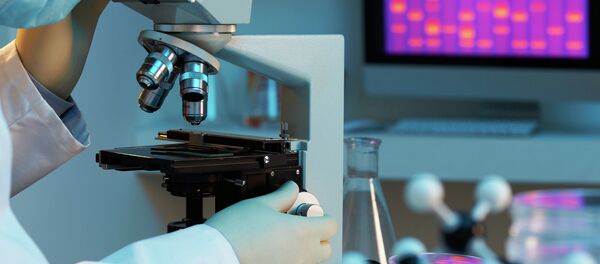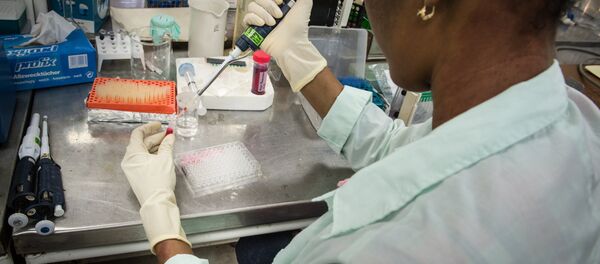Earlier, the professor announced that he had managed to alter the DNA of twin girls to prevent them from contracting HIV. He said he had eliminated a gene called CCR5 making the twins resistant to the disease.
Sputnik has discussed the gene-editing of embryos in China with Dr Yalda Jamshidi, an expert in human genetics at St George's, University of London.
Sputnik: Some experts have suggested that this experiment is criminal; it's both fascinating and disturbing, what's your take on it?
Dr Yalda Jamshidi: So it's definitely got a lot of people talking. I think some of the main points are that it's not clear how the consent process was carried out. Scientists don't really know the risks associated with this kind of work, particularly, in the embryos. So it's hard to understand how the parents themselves would've been able to understand the risks.
READ MORE: Pentagon Research on Insects Could Yield Biological Weapon, Scientists Warn
Also, of course, the institutions say they have no involvement and Dr Jiankui didn't involve the Chinese authorities and likely they would've said no if he did. So as far as I'm concerned it definitely was carried out outside the realms of legality.
Sputnik: What's the point of this experiment, perhaps, you can just elaborate on this a little bit, because people are scratching their heads because of the fact that it wasn't clear that the embryos were infected with HIV, can you shed any more light on this?
Sputnik: Having spoken to another expert regarding this particular subject matter he's saying that generally the processes is that this kind of investigative work is usually discussed in medical journals, that brings it to attention of the global medical world and then other further discussion is taken before regulations are followed, what's the motivation behind this? Is it purely monetary or does this particular doctor have other potential aspirations here, have you got a point of view on that?
Dr Yalda Jamshidi: Well, the work, as I said, would have not been probably allowed under most ethics boards because there was no clear benefit to the experiment. So, the only reason I can see that he's done this is to test the point of does this work and could it be used in the future, which unfortunately I don't think should be allowed on human embryos. So definitely, in terms of ethical benefits I can't see any, and the risks definitely outweigh those benefits anyway.
Sputnik: Now the foetus was unable to provide his or her consent for this experiment. You've mentioned the ethics in your last answer there, what does it say about the ethics of this particular experiment? Are we going to be forgetting about this in a couple of weeks', months' time or is this going to open broader conversation in terms of this search for the perfect humanity?
READ MORE: Book on Ancient India's Contribution to Science & Tech to Soon Hit the Stands
This experiment was different. There was no reason for them to be unhealthy, no clear benefit. So actually in terms of ethics it's irresponsible and unethical.
Sputnik: What's your view in terms of this particular scientist choosing to experiment on humans instead of animals? Was it just purely financial then?
Sputnik: Can you explain to us what are the wider implications then, should the University which hosted the scientist be held responsible in terms of the violation of the ethics code of scientists or is this purely down to the actual scientist himself being responsible? Will he inevitably go to jail or what repercussions is he likely to receive now with regard to this? And how likely will something severe happen to him?
Dr Yalda Jamshidi: Well, he's under investigation by the Chinese authorities and likewise the university have stepped back and said that he wasn't under their employment certainly in the more recent months, but perhaps when he started off these experiments. So whether they had any idea what the potential future experiments would be or not will be a case for investigation, and I think that will have to take place with the help of international investigators not just internally.
READ MORE: Chinese Pet Owners Spend Big Bucks to Clone Their Deceased Dogs
The views expressed in this article are solely those of Dr Yalda Jamshidi and do not necessarily reflect the official position of Sputnik.





